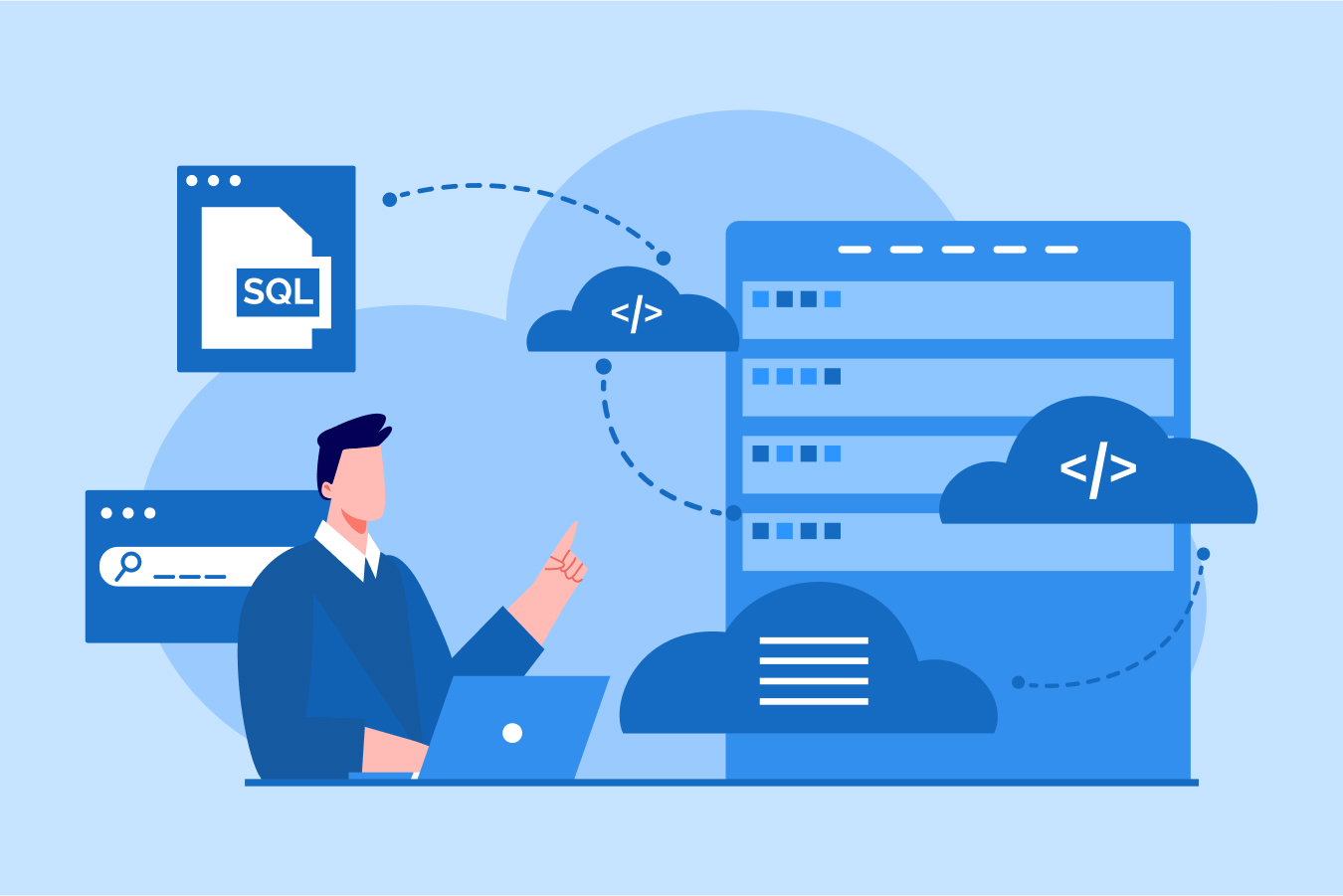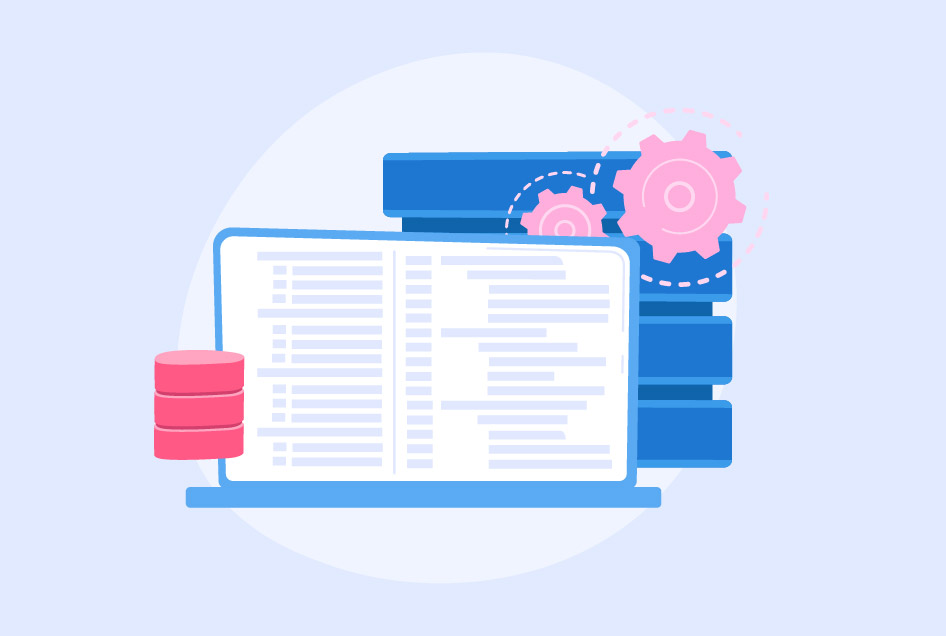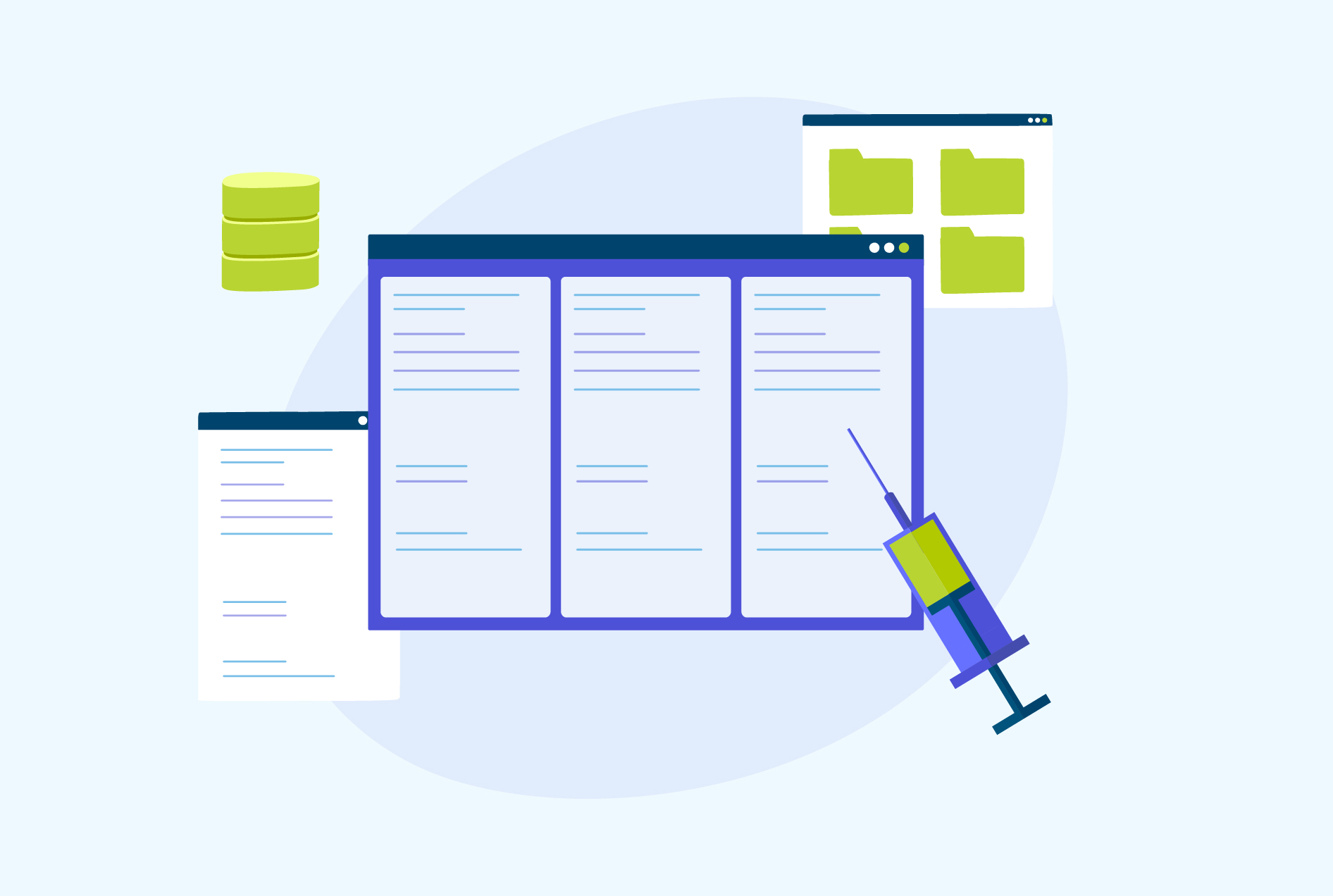Key Difference Between SQL and PL/SQL – A Comparative Guide
According to recent reports, SQL has become the most popular and most commonly used database environment. On the other hand, PL/SQL ranks among the top 50 programming languages in the world.
Over the decades, Oracle has provided the world with countless programming languages that can serve multiple purposes across any firm. Both SQL and PL/SQL stand among the two most well-known programming languages released by Oracle. In this blog, we will learn about the primary difference between SQL and PL/SQL along with their individual characteristics.
SQL Vs PL/SQL: Key Differences
SQL (Structured Query Language) is used for database manipulation tasks such as retrieving data from the database or inserting records into it. On the other hand, PL/SQL (Procedural Language/Structured Query Language) adds extra features to standard SQL that allow developers to create more complex programs with control structures like loops, conditions, etc. Here are some of the key differences between SQL and PL/SQL:
- PL/SQL, an application-oriented language, is a Procedural Language/Structured Query Language that uses SQL as its database. On the other hand, Structural Query Language (SQL) is a declarative detail-focused language crafted for manipulating relational databases.
- SQL does not have any variables, whereas PL/SQL has various elements, such as constraints, data types, and more.
- In SQL, DDL and DML are used for writing queries and commands. PL/SQL goes a step further by enabling code blocks that include functions, triggers, variables, and control structures like ‘for loops’ or conditional statements, such as ‘if..then..else’.
- With SQL, there is a direct exchange of statements between the database server and itself. On the other hand, this is not true for PL/SQL.
What is SQL?
Structured Query Language, popularly known as SQL, is a strong non-procedural database language. It is used to create, maintain, and access relational databases. It stores information in tabular form inside a relational database management system.
Relational databases refer to the types of databases that provide and store data that is somehow related to each other. They are used to store information in table formats that contain different rows, columns, and data attributes. Inside the database, you can find several relationships between the data values.
SQL is a type of query language frequently used in almost all types of applications. If you want to learn more about SQL, enrolling in a SQL course can offer a great start.
What is PL/SQL?
The ‘Procedural Language Enhancements’ within SQL are called PL/SQL. It is a kind of procedural language, which allows developers to efficiently combine the characteristics of SQL inside the procedural instructions. PL/SQL supports a large number of data structures as well as data types.
The reason behind PL/SQL’s popularity is that it is highly structured and an easy-to-read language. The commands used in PL/SQL can be easily understood by a beginner developer.
Apart from that, PL/SQL provides excellent performance while executing codes. It offers an extensive level of programming solutions that can be used effectively in mission-critical projects.
SQL and PL/SQL- Differences
Let us now see SQL and PL/SQL differences on the basis of different parameters.
| Sr. No. | Basis of Comparison | Structured Query Language (SQL) | Procedural Language/Structured Query Language (PL/SQL) |
|---|---|---|---|
| 1. | Variables | It does not support any variable. | It supports all kinds of variables, restrictions, and data types. |
| 2. | Control Structures | Control structures like, ‘for’ loop, ‘if’, and others are not accessible in Structured Query Language. | Control structures such as ‘for’ loop, ‘while’ loop, ‘if’, and others are accessible in Procedural Language/Structured Query Language. |
| 3. | Nature of Orientation | It is a data-oriented programming language. | It is an application-oriented programming language. |
| 4. | Operations | In structural query language, a query can only execute a single action. | Network traffic is decreased in Procedural Language/Structured Query Language since a PL/SQL block conducts a group of operations as a single structure only. |
| 5. | Declarative/ Procedural Language | It is a type of declarative programming language. | It is a language made for procedural programming. |
| 6. | Embed | SQL can be easily incorporated into PL/SQL or we can say that PL/SQL has all features of SQL embedded into it. | On the other side, SQL cannot contain PL/SQL. |
| 7. | Interaction with Server | Structured Query Language communicates directly with the database server. | It has no direct interaction with its database server. |
| 8. | Exception Handling | It does not handle errors or exceptions. | It can easily handle errors and exceptions during the execution of its code. |
| 9. | Writes | It is primarily used to create queries that use DDL and DML statements. | PL/SQL is used to create code frames, procedures, operations, triggers, and packages. |
| 10. | Processing Speed | It does not provide its users with a fast processing speed for large amounts of data. | It gives fast processing speed for large amounts of data. It serves as an attractive feature for its users. |
| 11. | Application | SQL allows you to retrieve, modify, add, remove, or alter data within a database. | On the contrary, PL/SQL is used to create programs, which simply display SQL data in an efficient and orderly manner. |
Which is Better – SQL or PL/SQL?
It is a matter of what your requirements are that will determine whether SQL or PL/SQL is the more suitable choice. PL/SQL offers many additional features, such as functions, data variables, exception handling, and triggers that are not available in SQL.
Furthermore, it can send an entire block of statements to the database at once, whereas SQL must execute a single query each time. This results in less traffic on the network, making PL/SQL more advantageous than regular SQL.
SQL Vs PL SQL Applications: Which One Should You Choose?
In the aforementioned section, we observed that both SQL and PL/SQL offer their own set of advantages and disadvantages. Both these languages are equally popular among developers around the globe.
The application part of SQL and PL/SQL is yet another criterion to see the difference between SQL and PL/SQL. Therefore, to help you make an informed decision, let us take a look at the applications of both these languages.
Structured Query Language (SQL) Applications
More than half of the coders present around the globe use SQL. Here are some of the primary applications of SQL in multiple domains:
- Definition Language- It is used as a data definition language. You can create a database using structural query language alone and further define the structure of this database.
- Manipulation Language- It can also be used as a data manipulation language. You can use it efficiently to maintain an already existing database that you probably created in the past.
- Control Language- Structured Query Language when used as a data control language, can help you protect your essential databases from any external misuse.
- Detail-Oriented- SQL commands are an excellent choice to develop analytical reports owing to their detail-oriented nature.
- Secure Language- The client service execution and authentication features of SQL are much like cherry on top for its users.
Also Read: Types of SQL Commands
Procedural Language/Structured Query Language (PL/SQL) Applications
Procedural Language/Structured Query Language is basically an application-oriented programming language. It has the following applications:
Back-end Functions- It is generally used to develop applications such as user interfaces and back-end functions for various websites.
- Back-End Functions– It is generally used to develop applications such as user interfaces and back-end functions for various websites.
- Data Manipulation- With the help of PL/SQL, you can use SQL commands to manipulate as well as process Oracle data.
- Web-Based Applications– PL/SQL supports and can be used to develop web applications and server pages.
- PL/SQL Packages– A PL/SQL package includes variables, cursors, exceptions, constants, functions, procedures, as well as subprograms. With the help of PL/SQL, you can also access several pre-defined packages in SQL.
- Multi-Functional Language- PL/SQL can also be used with PHP as well as Java languages to develop complex programming logic.
The choice between SQL and PL/SQL depends on your individual needs. If your major requirement is data manipulation, SQL is an excellent tool to pick. On the contrary, choose PL/SQL if you are looking for better performance and execution of your written codes.
Conclusion
We learned that PL/SQL is just SQL with additional procedural capabilities. They are enabled into the PL/SQL and therefore, can perform all the operations that Structured Query Language does, along with its own. Since controlling and managing data have become more important than ever, the knowledge of SQL and PL/SQL differences can be extremely valuable for developers in any field.
FAQs
One of the major advantages of PL/SQL is that it can send an entire block of statements to the database at once, whereas SQL executes a single query each time.
PL/SQL is an extended version of SQL created by Oracle that combines procedural elements with normal SQL statements. It has features like procedures, functions, and packages that can be defined and used in a PL/SQL program.
MySQL is a well-known, easy-to-use database management system renowned for its efficiency and performance. Oracle PL/SQL is an advanced programming language found in the Oracle database used to create complex business applications.
A PL/SQL function is a piece of code stored in an Oracle database that can be used multiple times to carry out specific tasks. It is like a mini-program that always gives back some sort of output when it runs.
A package is a group of related PL/SQL types, variables, constants, subprograms, cursors, and exceptions that can be stored in the database for use by multiple applications. It provides an efficient way to organize code to easily understand how different pieces interact with each other. Packages make developing applications simpler because their interfaces are well-defined and easy to work with.
A PL/SQL trigger is a named object that tells the database what actions to take when an insert, update, or delete action happens on a table. Triggers are made with the CREATE TRIGGER command in PL/SQL.






